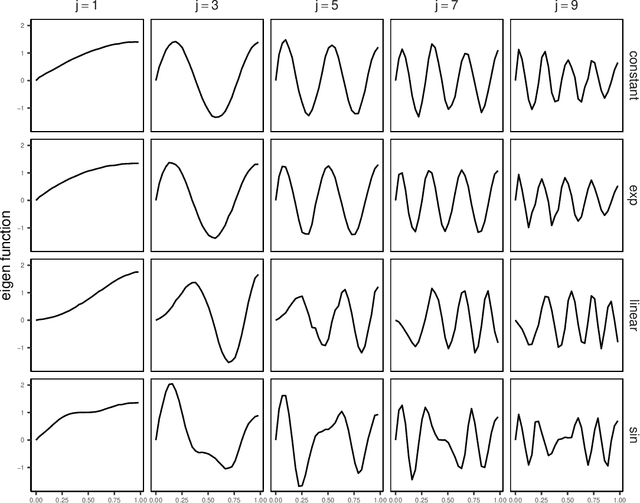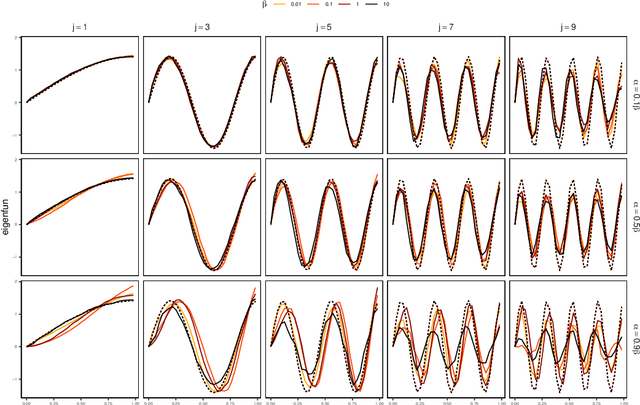Vincent Rivoirard
PCA for Point Processes
Apr 30, 2024



Abstract:We introduce a novel statistical framework for the analysis of replicated point processes that allows for the study of point pattern variability at a population level. By treating point process realizations as random measures, we adopt a functional analysis perspective and propose a form of functional Principal Component Analysis (fPCA) for point processes. The originality of our method is to base our analysis on the cumulative mass functions of the random measures which gives us a direct and interpretable analysis. Key theoretical contributions include establishing a Karhunen-Lo\`{e}ve expansion for the random measures and a Mercer Theorem for covariance measures. We establish convergence in a strong sense, and introduce the concept of principal measures, which can be seen as latent processes governing the dynamics of the observed point patterns. We propose an easy-to-implement estimation strategy of eigenelements for which parametric rates are achieved. We fully characterize the solutions of our approach to Poisson and Hawkes processes and validate our methodology via simulations and diverse applications in seismology, single-cell biology and neurosiences, demonstrating its versatility and effectiveness. Our method is implemented in the pppca R-package.
Scalable Variational Bayes methods for Hawkes processes
Dec 01, 2022



Abstract:Multivariate Hawkes processes are temporal point processes extensively applied to model event data with dependence on past occurrences and interaction phenomena. In the generalised nonlinear model, positive and negative interactions between the components of the process are allowed, therefore accounting for so-called excitation and inhibition effects. In the nonparametric setting, learning the temporal dependence structure of Hawkes processes is often a computationally expensive task, all the more with Bayesian estimation methods. In general, the posterior distribution in the nonlinear Hawkes model is non-conjugate and doubly intractable. Moreover, existing Monte-Carlo Markov Chain methods are often slow and not scalable to high-dimensional processes in practice. Recently, efficient algorithms targeting a mean-field variational approximation of the posterior distribution have been proposed. In this work, we unify existing variational Bayes inference approaches under a general framework, that we theoretically analyse under easily verifiable conditions on the prior, the variational class, and the model. We notably apply our theory to a novel spike-and-slab variational class, that can induce sparsity through the connectivity graph parameter of the multivariate Hawkes model. Then, in the context of the popular sigmoid Hawkes model, we leverage existing data augmentation technique and design adaptive and sparsity-inducing mean-field variational methods. In particular, we propose a two-step algorithm based on a thresholding heuristic to select the graph parameter. Through an extensive set of numerical simulations, we demonstrate that our approach enjoys several benefits: it is computationally efficient, can reduce the dimensionality of the problem by selecting the graph parameter, and is able to adapt to the smoothness of the underlying parameter.
 Add to Chrome
Add to Chrome Add to Firefox
Add to Firefox Add to Edge
Add to Edge